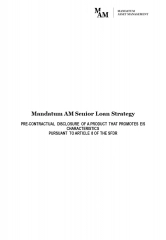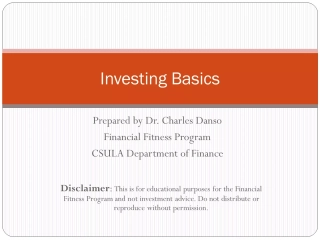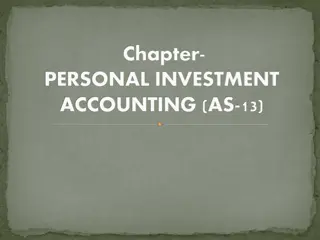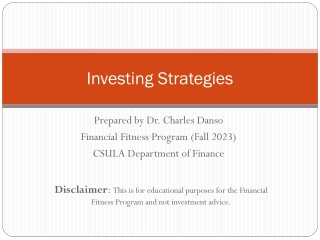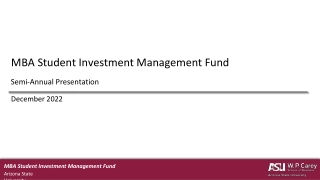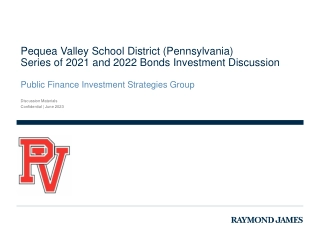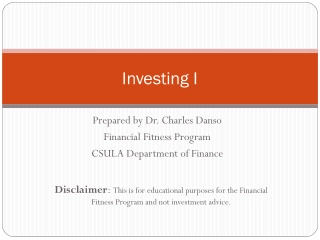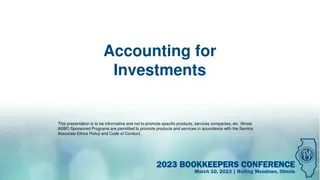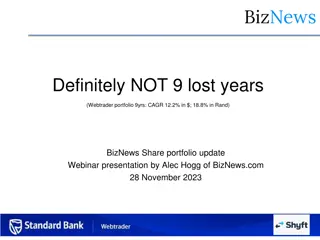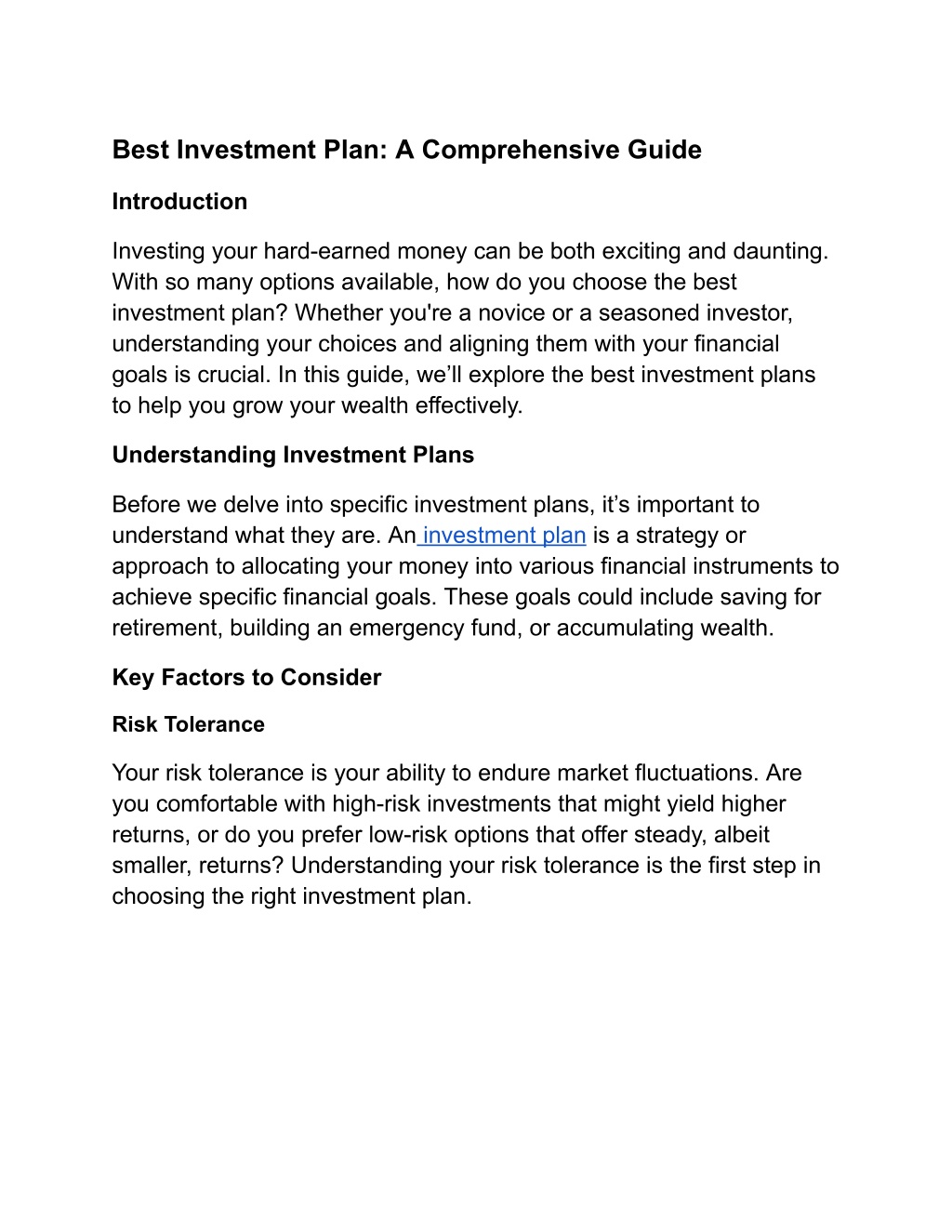
Best Investment Plan_ A Comprehensive Guide (1)
Investing your hard-earned money can be both exciting and daunting. With so many options available, how do you choose the best investment plan? Whether you're a novice or a seasoned investor, understanding your choices and aligning them with your financial goals is crucial. In this guide, weu2019ll explore the best investment plans to help you grow your wealth effectively
Uploaded on | 0 Views
Download Presentation
Please find below an Image/Link to download the presentation.
The content on the website is provided AS IS for your information and personal use only. It may not be sold, licensed, or shared on other websites without obtaining consent from the author. Download presentation by click this link. If you encounter any issues during the download, it is possible that the publisher has removed the file from their server.
Presentation Transcript
Best Investment Plan: A Comprehensive Guide Introduction Investing your hard-earned money can be both exciting and daunting. With so many options available, how do you choose the best investment plan? Whether you're a novice or a seasoned investor, understanding your choices and aligning them with your financial goals is crucial. In this guide, we ll explore the best investment plans to help you grow your wealth effectively. Understanding Investment Plans Before we delve into specific investment plans, it s important to understand what they are. An investment plan is a strategy or approach to allocating your money into various financial instruments to achieve specific financial goals. These goals could include saving for retirement, building an emergency fund, or accumulating wealth. Key Factors to Consider Risk Tolerance Your risk tolerance is your ability to endure market fluctuations. Are you comfortable with high-risk investments that might yield higher returns, or do you prefer low-risk options that offer steady, albeit smaller, returns? Understanding your risk tolerance is the first step in choosing the right investment plan.
Investment Horizon Your investment horizon is the length of time you plan to invest before you need to access your funds. Short-term investments typically range from a few months to a few years, while long-term investments span decades. Your investment horizon will influence the types of investments suitable for you. Financial Goals What are you investing for? Whether it s buying a house, funding your children s education, or planning for retirement, your financial goals will shape your investment strategy. Clear goals help in selecting the right investment vehicles and setting realistic expectations. Top Investment Plans 1. Stock Market Investments Investing in stocks can offer substantial returns over the long term. When you buy stocks, you re purchasing shares of a company, making you a partial owner. Stocks are considered high-risk investments due to market volatility but have the potential for high returns. Advantages: High potential returns Dividend income Ownership in companies Disadvantages: High volatility Requires knowledge and research Not ideal for short-term goals
2. Mutual Funds Mutual funds pool money from multiple investors to invest in a diversified portfolio of stocks, bonds, or other securities. Managed by professional fund managers, mutual funds offer diversification and are less risky than investing directly in individual stocks. Advantages: Diversification Professional management Suitable for various risk tolerances Disadvantages: Management fees Less control over specific investments 3. Real Estate Investing in real estate involves purchasing property to generate rental income or for future resale at a higher value. Real estate can be a stable investment, offering both income and potential appreciation. Advantages: Tangible asset Rental income Potential for property appreciation Disadvantages: Requires significant capital Management and maintenance costs Illiquid asset
4. Bonds Bonds are debt securities issued by governments or corporations to raise capital. When you invest in bonds, you re essentially lending money to the issuer in exchange for periodic interest payments and the return of the bond s face value upon maturity. Bonds are generally considered safer than stocks. Advantages: Steady income through interest payments Lower risk compared to stocks Diversification Disadvantages: Lower returns than stocks Interest rate risk Credit risk if the issuer defaults 5. Retirement Accounts (401(k), IRA) Retirement accounts like 401(k) and IRA (Individual Retirement Account) offer tax advantages and are specifically designed for long-term retirement savings. Contributions to these accounts often come with tax benefits, and investments within these accounts grow tax-deferred or tax-free. Advantages: Tax benefits Long-term growth potential Employer matching contributions (for 401(k))
Disadvantages: Penalties for early withdrawal Contribution limits Limited investment choices in some plans 6. Exchange-Traded Funds (ETFs) ETFs are similar to mutual funds but trade like stocks on an exchange. They offer the benefits of diversification and can be a cost-effective way to invest in a broad market index or sector. Advantages: Diversification Lower fees than mutual funds Flexibility of stock trading Disadvantages: Brokerage fees Can be affected by market volatility Creating Your Investment Plan Step 1: Set Clear Financial Goals Identify what you re investing for and how much you ll need. This will guide your investment choices and strategy. Step 2: Assess Your Risk Tolerance Determine how much risk you re willing to take. This will help in selecting suitable investments. Step 3: Diversify Your Portfolio Don t put all your eggs in one basket. Spread your investments across different asset classes to minimize risk.
Step 4: Monitor and Rebalance Regularly review your investment portfolio and make adjustments as needed to stay on track with your goals. Step 5: Consult a Financial Advisor Consider seeking professional advice to help you create and manage your investment plan effectively. Conclusion Choosing the best investment plan depends on your individual financial goals, risk tolerance, and investment horizon. Whether you re investing in stocks, mutual funds, real estate, bonds, or retirement accounts, the key is to stay informed and make decisions that align with your long-term objectives. Happy investing!

